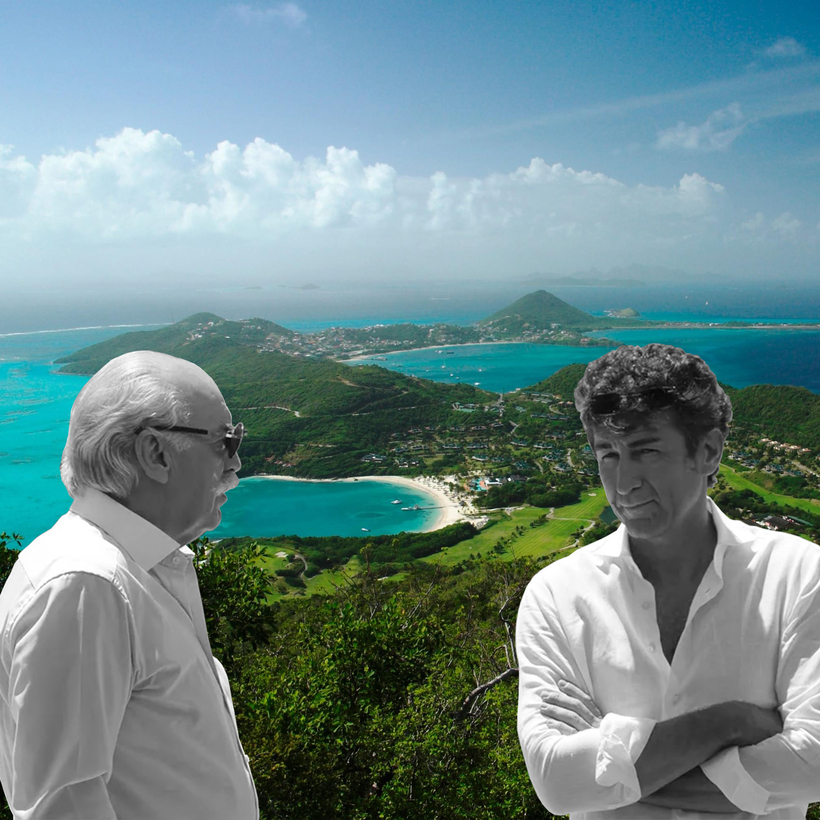The pristine beaches, sprawling party palaces, and richly chronicled social scene—it’s every developer’s dream to re-create Mustique. Who wouldn’t want to lord over a place where billionaires and Hollywood types go to get away from the merely rich?
Andrea Pignataro, the Italian billionaire who owns and manages much of the neighboring island of Canouan, nearly achieved it. For a brief moment, Canouan was one of the most talked-about resorts in the Caribbean and a retreat that attracted George Clooney, Leonardo DiCaprio, and Meghan Markle and Prince Harry. Then it all started to fall apart.


